The New Face of Bass: An Interview With Evan Brewer
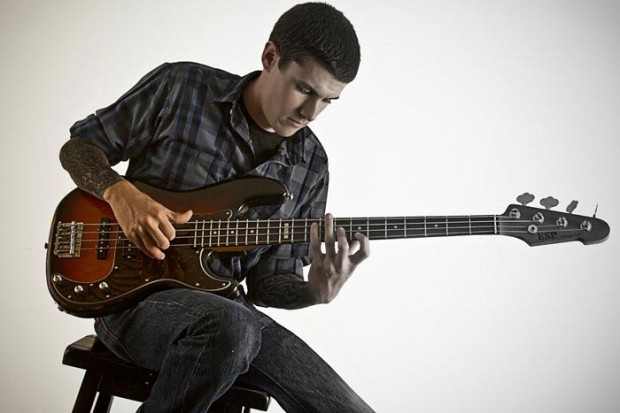
With unbelievable technique and a unique musical voice, Evan Brewer is quickly becoming the face of the new wave of bass heroes. The former Animosity bassist joined the ranks of technical death metal band The Faceless last year in time to help write and record their new album Autotheism, which hit shelves August 14th. The band has just wrapped up their run with the Summer Slaughter Tour where their progressive spirit was evidenced in their stage setup as well as their music since the band only used in-ear monitors and no backline.
Last year saw the release of Alone, a fresh take on the solo bass format. Utilizing only his bass, Brewer crafts interesting compositions that have been inspiring listeners beyond the bass community.
After catching Evan with the Faceless at the Richmond, Virginia stop of the Summer Slaughter Tour, we followed up again to find out more about the new album, his recording and writing techniques, his latest solo efforts and his passion for saving music education.
I have to ask this first, because I noticed you guys use in-ear monitors with no amps on stage. Who’s idea was it to do that?
It’s something we started doing after our European tour. We just wanted to eliminate that variable of having to deal with the monitors. Because our lead guitarist sings, he had switched over to in-ears previous to the rest of us and he really liked it and became an advocate for switching. We kind of all followed suit.
So is that something you like?
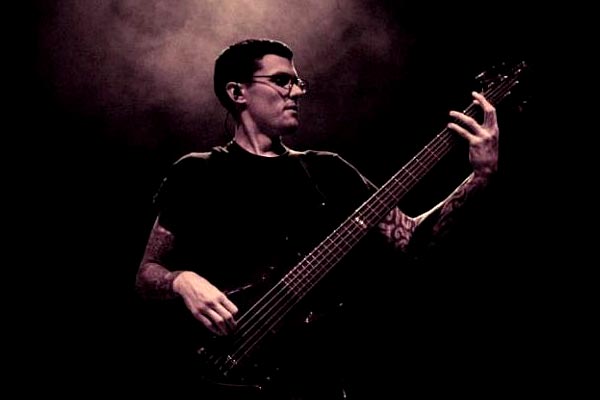 I love it. I don’t think I’ll ever go back. I’ll always play with in-ears to some capacity. It may not be all in-ears, moving forward. For solo stuff I might use a little amp and have it mostly in my in-ears, but I don’t know.
I love it. I don’t think I’ll ever go back. I’ll always play with in-ears to some capacity. It may not be all in-ears, moving forward. For solo stuff I might use a little amp and have it mostly in my in-ears, but I don’t know.
On this tour, since it’s a real load-on, load-off tour, we didn’t bring a lot of our stuff, but we’re going to end up filling that stage with cool stuff. Not having a bunch of gear gives you some visual options. It means you can do lots of cool stuff with projector screens and so on. We’ve got a lot of ideas for the theme of the new album that we’ll be implementing.
So when will the Faceless be going out on their own tour?
Our plans after this tour are kind of indefinite. We have to go to Australia and Japan and some of those places soon, so what we’re probably going to do is tie that in a little mini trip, and then we’ll end up going on a headliner in the fall. That’s what we’re looking at unless some big support offer comes in. Maybe we’ll get back to Europe in the winter time.
Autotheism is your first album with the group. What can fans expect? What’s the general sense of the album?
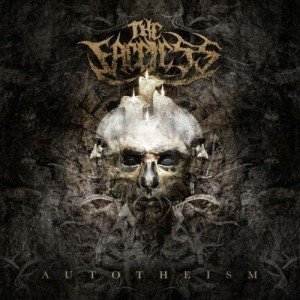 Well, we have a single that’s been up and streaming on XM that’s called “Deconsecrate,” and we’re also playing that song live. Dude, that song is a good song to start with because it’s a good overview of what to expect in the album. There’s still a lot of really technical riffs, there are some more simple riffs, and there’s a little bit more singing. It’s basically like everything The Faceless has ever done, we took and kind of expanded upon. You know, we’ve had clean singing in the past, but now we have a little bit more. We’ve had technical riffs – we all know that – but now we have probably less technical riffs but when they are there they’re even more technical. It’s almost like distilling your sound and taking the best part of each element and trying to expand on them. I’d say that would be the main theme of the writing style of the album.
Well, we have a single that’s been up and streaming on XM that’s called “Deconsecrate,” and we’re also playing that song live. Dude, that song is a good song to start with because it’s a good overview of what to expect in the album. There’s still a lot of really technical riffs, there are some more simple riffs, and there’s a little bit more singing. It’s basically like everything The Faceless has ever done, we took and kind of expanded upon. You know, we’ve had clean singing in the past, but now we have a little bit more. We’ve had technical riffs – we all know that – but now we have probably less technical riffs but when they are there they’re even more technical. It’s almost like distilling your sound and taking the best part of each element and trying to expand on them. I’d say that would be the main theme of the writing style of the album.
As far as the approach went, our guitar player completely produces all our music for The Faceless and writes most of it as well. He was kind of the main starting out point for all of these songs, then we each got super rough demos. In my case, he didn’t put any bass on anything but he programmed up some drums to give enough of an idea to rough track guitars. Then we each kind of took that stuff and went our own way with our each individual instruments. Whereas I didn’t necessarily write the starting points of the songs, I wrote my own bass parts and stuff like that. It came out really good. We’re lucky in our band that, in my opinion, we’ve got a lot of really good talent. We can just say, “Here are some riffs. Do your own thing.” And each person will take those starting points and really be able to run with them and expand on them. The song would really come to life as each new layer was put on. It was a cool process in that sense.
It sounds like a cool communal thing rather than one guy bringing everything to the table.
Yeah, well with technical music I’ve found that it’s better to have one or maybe two guys that are kind of the vision for the band. They start and write what I call foundation structures. Then you get that feel of a really themed album, and it doesn’t have that schizophrenic, too-many-cooks-in-the-kitchen kind of album feel. Everyone gets to exercise their own musical voice in the fact that they have the freedom to play what they want to play on their instrument.
So each personality can still come out.
It can still come out without losing that whole really themed, album-as-a-whole listening experience and vision.
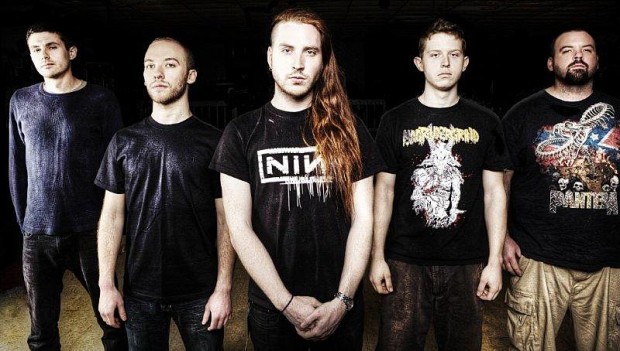
What’s the band chemistry like?
Our band chemistry is really cool. We’re a relatively low key band, but we’re all quite a bit different. I’m probably one of the more laid back dudes in the band in the sense that I’m not a big partier… I’m not trying to go out, I’m just trying to work on music. As far as musically, we’re all very much on the same page. We don’t have a lot of debates about musical direction ever because we just agree on where to go. So we’re good on that front. Really, the underlying theme of our band that plays out in our personalities is the difficulty of what we do takes a lot of work and dedication, so everybody’s willing to put that time in. When we’re on the road, our main focus is playing good every night and making sure our stuff is right and that’s actually a full time job. We’re all clicking on the same cylinders and going for that goal, we pretty much get along great because we’re achieving what we want. It’s like a full time job and that’s where most of our heads are at the whole time.
But when you get on the road and you’re rolling, if you don’t have a good chemistry, that quickly creeps into the whole experience. We’ve got a really good mix of veteran touring people and new to touring people in our band right now. What that means is you get the experience of the guys that have done a million tours and you get the enthusiasm of the guys who are new to the touring experience. Those two things combined make for a really good time, so that’s cool.
How did you record the new album?
The technique was just super riff by riff, basically. You know, just taking advantage of the whole digital format and the fact that we didn’t have any studio time restrictions because we do our stuff ourselves. Me and [guitarist Michael Keene] just went in there and over the course of three really laid back days, we recorded the bass. We weren’t working particularly hard any of those days. We’d do a couple songs a day and go get lunch. We kept it leisurely.
As far as when we were in there and when we were tracking, we pretty much went riff by riff. In technical music, one of the best things you can do when you’re writing, learning, or recording is to almost treat each riff like a song. Figure out what each riff has to say – really digest every riff and don’t move on until you’ve got that one. You know, we have a lot of linear song structures, songs with excess of fifteen parts, and stuff like that. The best thing to do in those situations is to treat each riff like a song. And then, don’t play a song until you can sing it to yourself. That’s what we do.
I had a lot of preconceived ideas of what I wanted to do. Some of the stuff where it was more open where the bass could really influence different things like clean vocals that I had never heard before I went into the studio, I went in leaving things open. I knew the music. I knew the key changes and tonalities, but I didn’t solidify the exact part because I wanted to work with Michael. A little bit of that process was collaborative between me and him, but for the most part it was just part by part, punching-in kind of recording and making sure everything was meticulously perfect. Even with that being said, even being that specific in the recording approach, it went really fast.
So did you record direct?
I did. Yeah, I ended up using a pretty weird signal path. We A and B’ed a ton of equipment, as far as just basses. What I ended up using was a Warwick Thumb 5-string bass. It was an old one that had like a baseball bat neck. It’s one of those old Thumbs with the huge neck. I had a really hard time playing it. The action was super high, the strings were super thick, but at the end of the day that’s what sounded best.
My whole thought process is that album is going to be out there forever, so I’d rather my hand hurt for a few days to get the best possible tone rather than compromising that in any way. I don’t remember an achy hand the next month even, so it’s more important to get it right. But we took that Warwick and we ran it into this Randall bass head that they were making for a while. I don’t even know if they’re trying to do that still, but for a while they were making these bass heads. For whatever reason, Michael really really liked that head. We ran into that for a little bit of EQ and out of that into his Universal Audio tube pre, and that was it. That was the signal chain, straight to tape. He didn’t really do much after the fact. I think he put a little bit more compression on it and maybe just a little EQ and that was it.
What got you started playing bass?
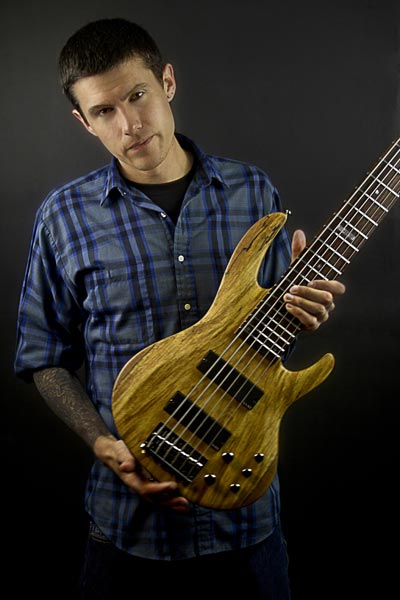 Well, I came from a musical family in terms of my dad. He’s kind of a multi-instrumentalist and mainly a really good singer, but he’s been the type of musician that kind of dabbles in everything. If he’s going to make a song, he can play the guitar or the bass or anything, but he’s mainly a singer. So I grew up from an early age going to his band practices and just being around music a lot.
Well, I came from a musical family in terms of my dad. He’s kind of a multi-instrumentalist and mainly a really good singer, but he’s been the type of musician that kind of dabbles in everything. If he’s going to make a song, he can play the guitar or the bass or anything, but he’s mainly a singer. So I grew up from an early age going to his band practices and just being around music a lot.
He tried to get me into guitar for a long time but I didn’t like it. I was playing on an acoustic and the tension was crazy and it was cutting up my fingers. I just couldn’t get the feel for it. You know, as a kid you’ll try things and get fired up about it for a day or two and then just forget. That was definitely my case with guitar. I just never really felt a calling to it.
Then in eighth grade we had a music class in my middle school. We had what I guess was the end of the music programs in schools pretty much. They somehow got a few guitars in there. The lady didn’t really know how to play guitar specifically, so she was showing us how to play some songs like Stand by Me with just single notes. I got weirdly addicted to playing that guitar with just single notes. I didn’t have a lot of interest in chords. I was showing my dad how I played and he said, “Yeah, you’re playing it like a bass. You should try this bass.” I started playing the bass that he had. It had super high action, but I still felt like I could play it better than I could ever play the guitar right off the bat and because the strings were thicker they weren’t cutting into my fingers. So inadvertently, I think that’s one of the main deciding factors about making me play bass. Simply because it wasn’t cutting up my fingers, I wouldn’t have to stop playing at any point.
Another deciding factor I think was just that at the time I started playing, popular music had a lot of really good bass players involved in it. The Red Hot Chili Peppers were all over the radio with the Blood Sugar Sex Magik album, which has some of the best bass tone and bass lines put on tape, in my opinion. Primus was on the radio all the time. You just heard more bass in general, so I think those two things just combined at the right time. I never stopped playing since then. Ever. That’s kind of how it went down.
What was your first bass?
That bass was just a white Hondo bass. I don’t even know where my dad got it. It was just something he had around for recording when he was just demoing stuff out. In a songwriter context, you don’t need a super nice bass to get the job done, and that’s all that was for him. But yeah, that thing was rough, for sure.
That’s funny, because [No Treble founder] Corey Brown had a Hondo starting out that he says was barely playable, and he says it’s incredible how playable entry level basses are these days.
It really is amazing. Say what you want about the big companies, but they figured out a way to make an instrument that’s highly playable for very cheap and get it into young kids’ hands. There’s something to be said for that. Players like us that have been playing for a million years, we don’t have to play those instruments. But for kids, to get something they can actually function with is a big deal.
You know, one thing I was going to say about me starting out is that if there had not been that music program, there’s a very good chance we wouldn’t be on the phone right now. Even though I came from a musical family, it took that lady bringing those guitars in and me experiencing that in school with my peers for that to really click with me. How many times is that missing from a kid’s life now that there is no music program? How many kids will find their musical voice, and could easily be the next Victor Wooten, or whoever? That’s something that’s concerning to me. I think about that a lot.
I didn’t get anything out of the music program particularly besides that, but I came away with a life changing realization from it. I feel like moving forward in my musical career, any success I get I’m definitely going to try to my best to try to put back into raising awareness for that. It’s something I feel very strongly about. It’s very concerning to me that there’s probably a lot of potential talent out there that isn’t being realized because of the fact that there’s no way to get an instrument into these kids’ hands anymore for them to even figure out that they like it.
It’s sad that the state of the arts is in such a slump.
Yeah, it is the state of the arts. What’s going to happen if we’re not introducing kids to music? If we’re not even at least giving them a chance to try it? I mean, if a parent sees their kid throw a baseball, they go, “Oh, he could be a baseball player. He likes baseball, let’s put him in baseball.” But if the kid is banging on a toy drum set or playing with a little fake guitar all the time, a parent doesn’t often times say, “Hey, let’s get him into music. Let’s expose him to this.”
Music, I think, is one of the most rewarding things a person can do with their life, irrespective of whether or not you make it a career. I mean, on just the hobby level, it’s very rewarding and it’s very helpful to developing a child’s brain. I know you can relate to times when you’ve been playing bass or working on theory and you feel like you just got the biggest brain workout of you life. That’s a good feeling. That’s healthy.
That’s why I try to teach a lot and if a kid comes up and is interested in bass, I always try to let them experience a potentially life changing moment. I mean, it could be a moment they don’t care about, but it could be a life changing moment. If I put my bass in a kid’s hands, something might click or a lightbulb might go off. You never know.
That’s cool to hear you’re so open to that.
Teaching and spreading the musical language are definitely some of my personal passions. I got so much from studying with Regi Wooten. It literally changed my life. Not just musically, but as a person. I want to give that back to people. Not everyone lives in Nashville, Tennessee where they can experience that kind of inspiration and be surrounded by that community. If I get a chance to interact with someone, I want to give them a little bit of what I was lucky enough to grow up with.
Inspiration is one of the hardest things to find. You can find all the knowledge in the world in all these books and videos and everything, but inspiration is something that’s not so cut and dry. If you don’t have it, you’re not going to go that far at the end of the day. If you’re not inspired, you just aren’t going to pick up your instrument.
I didn’t realize you studied with Regi!
Oh you didn’t know that? Yeah, Regi is one of my best friends, man. I studied with him starting out when I was about fourteen for a few years straight every week unless he was out on the road. Even going into my first lesson, for a fourteen year old kid I was pretty far along. I could do all the Red Hot Chili Peppers stuff and all that kind of slapping. I had done a little bit of Victor Wooten techniques and things. I was pretty far along, then what happened was as soon as I hooked up with him, it was like a renaissance. Just blasting off. Even after the first lesson, it was like the sky was the limit. We just quickly evolved into being really good friends. We jam all the time back home, and he’s a major, major, major influence on me. I can’t tell you enough how important he was to this whole process for me.
[The Wootens] are very inspirational people, and not just musically. They’re very good human beings, so having that influence on me was really important. I could have easily went the other way with life and just been a punk. If not for the circumstances of my youth and who I was associated with, having them as an influence was invaluable. We still jam and hang out all the time. You talk about inspiration and passion, I haven’t met anyone that has it more than Regi. Even Victor, he’s all busy with all his time on the road. He probably doesn’t get to play the bass that much. Regi is literally playing all the time. He’s as into as anybody, still at his age. He’s still improving and practicing and really pushing to get better. You just don’t see a lot of guys that are as accomplished as him and have been playing as long as him that still have that mentality. There’s only a few that I know.
Obviously with that in mind, the Wootens must have a fair amount on your solo bass style.
Absolutely, yeah. Mostly my right hand techniques came from them. You know, the whole Wooten influence for me is more about the techniques that I got from them and how I built on that and branched off to take my own way. My musical voice has never really been the same as theirs, and really, why would you expect it to be? We come from different eras and different worlds.
As far as the influence, I know exactly where it is in my playing, aside from going down and out with my thumb, I hear a lot more than that. I think as a player you can pretty clearly see your influences in your music. You know your whole development. But yes, the short answer is that it’s definitely my influence, and not just musically. The lessons that I learned from having Regi take me under his wing as a student and then eventually as a friend have just been so valuable. Whether it’s a lesson on advanced jazz theory to figure out what Miles and Coltrane and Charlie Parker were doing or a lesson on how to take a compliment. Or how to deal with success, and how to keep your head on straight. How to not get lost and eaten up in this business. All those things came from them, because there’s not anybody in this business that handles success and deals with the business end in a more graceful, human way. You know as well as I do that in this business, there are a lot of people that want to play that they’re bigger than they are or play some weird social ladder game. But for me, we’re all just people. That’s something that I hold really strongly to that I got from them. It’s like Victor – no one is more humble, but no one has gotten more praise, either.
I know you write music using a lot of MIDI. How did you write Alone, and what’s your writing style?
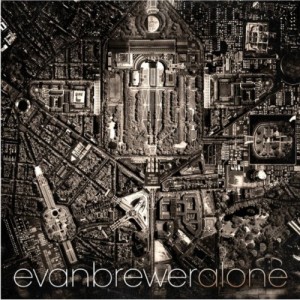 Alone was written at a time when I was off the road. My previous band, Animosity, had decided to disband and I took some time to kind of distance myself from music. Just for a little bit to gain a different perspective. It’s not that I wasn’t playing bass, I just wasn’t actively working a whole lot in music at the time. I had some down time and I embraced it. Alone was the result of that. I wasn’t on the road. I was just at home. I wasn’t super active as far as gigging, and I was taking that time for personal practice.
Alone was written at a time when I was off the road. My previous band, Animosity, had decided to disband and I took some time to kind of distance myself from music. Just for a little bit to gain a different perspective. It’s not that I wasn’t playing bass, I just wasn’t actively working a whole lot in music at the time. I had some down time and I embraced it. Alone was the result of that. I wasn’t on the road. I was just at home. I wasn’t super active as far as gigging, and I was taking that time for personal practice.
The Alone album wasn’t in any way written with MIDI. There’s nothing at any point in that album that’s anything but bass, so it was really just written in the studio. I wrote and recorded and produced everything myself. Again, like the Faceless album, there was no real time constraint to that. What I really do is I’ll get in the zone of writing something if it feels really good and I’ll just rough track all those parts as they come to me to a click inside a recording program. It’s kind of stream of consciousness, you know? And I’m not really even worried about getting the right takes, with the understanding that I’ll just get the riffs out there and I’ll come back later and polish up and do final tracking. Really, the stuff was rough demoed out in that sense and then perfected in later sessions. That writing process was a lot different than the new stuff.
The new stuff is super erratic. Like you said, I’m writing with MIDI because I’m on tour and I don’t always have the chance to hook up the bass and record. There’s not always a place for that, but it’s pretty easy to find time to pull out the laptop and MIDI something out real quick. I’ve got about four new songs and I’m working towards a new solo effort now. We’ll see where I end up at the end of tour, but I’m hoping to have the majority of the material written by fall. I’m looking tentatively at putting something out early next year, but it is going to be a lot different. The whole bass only element isn’t going to be there at all. There’s going to be all sorts of instruments and there’s going to be drums and stuff like that.
So are you going to just use the MIDI stuff and just use better samples or are you going to reach out and get live players for the whole thing?
I’ve got a few different drummers on board already. The MIDI is more just a place holder for what is going to actually end up being bass. For example, I’ll pull up a grand piano with a click track and if I have a chord progression, I’ll put the chords in the right hand that I would be playing above the twelfth fret on my bass so it would end up being a tapping part or something like that. And then that will be kind of the right hand place holder for the harmony of the song. In the left hand, I’ll play what would be like a rough bass line. Clearly what I’m going to program in MIDI is going to be a dumbed down version of what the bass will end up doing. Then any lead stuff I’ll play in between the two hands.
What it enables me to do is catalog all my ideas so that I can see them all. I’ll re-record them with the bass, but I can see every little note. If I record a bunch of stuff on tour, I’ll have to either notate it or chart it or I’ll be spending time after the tour figuring out what it was that I played. With MIDI, I’m afforded the luxury of going in to see every single note of each chord voicing or every note of a cool little lead I put on. That’s why for me the work flow is better, because I’m creating and cataloging at the same time with MIDI. I don’t have to write something, then record it with the bass and chart it out later.
That’s kind of the way I’m rolling right now, but when I get back home I probably won’t write that way at all. I’ll be at my studio so I’ll just go in and record what I need to record.

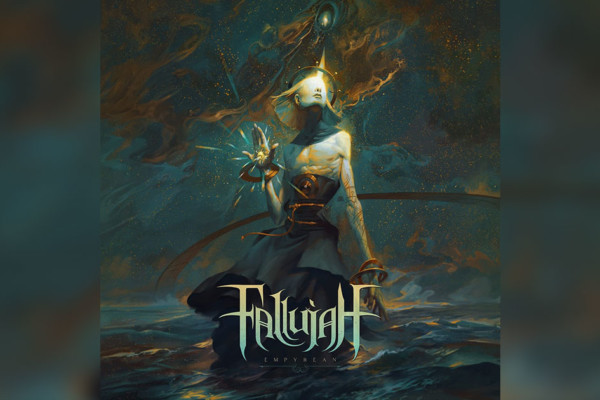
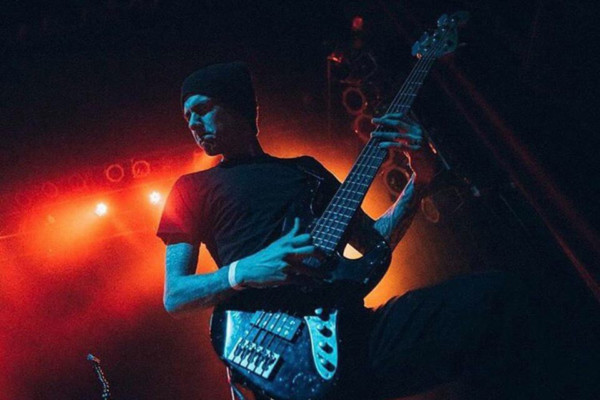
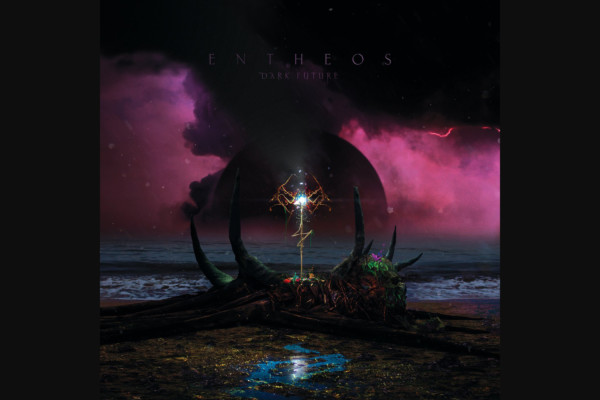
I would love to jam with this guy..biggest inspiration for me right now :D
this dude is amazing…him and tosin need to regroup.
you saw who did that interview right?
of course I did. Kevin is the reason I know about NoTreble.